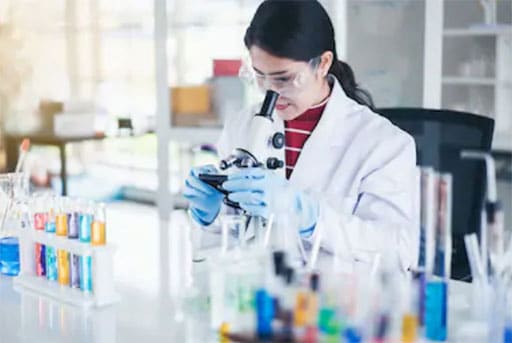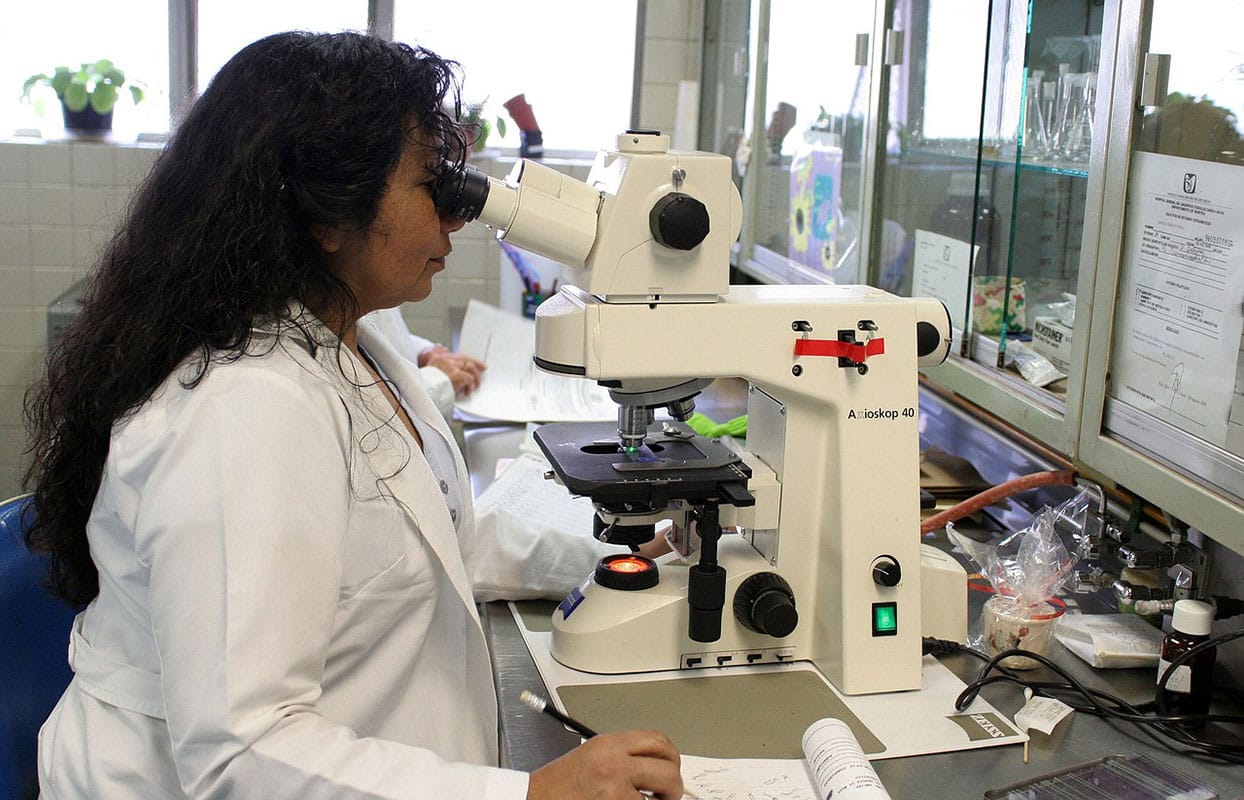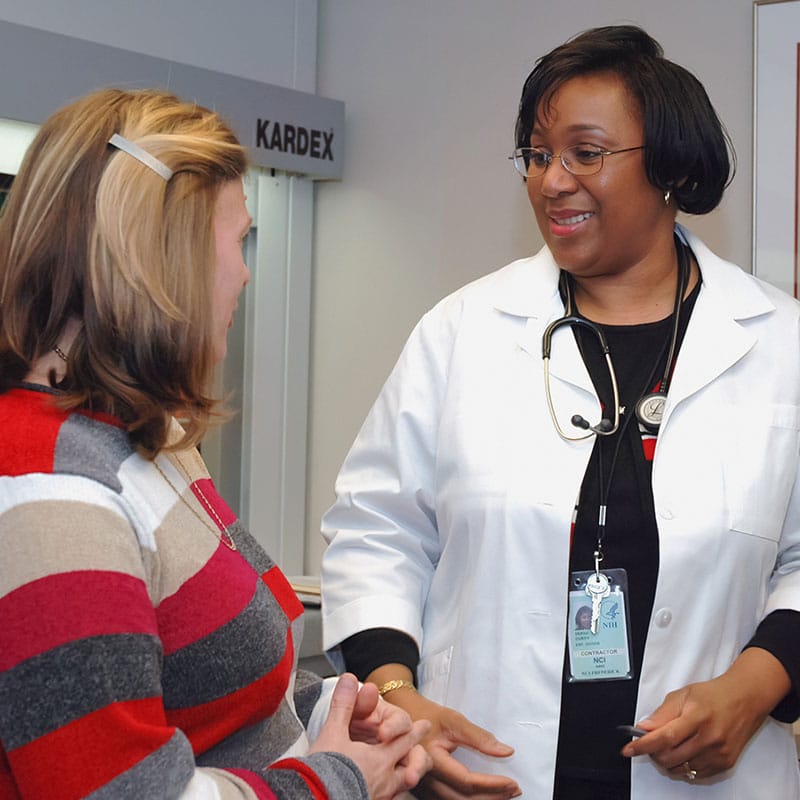Genomics careers
Find out about careers in genomics and the range of roles within the North Thames GMS.

Whether you have GCSEs or NVQs, previous work experience, a science degree, or a PhD, there will be a route into genomic healthcare for you.
Training courses are available at every entry point, and once you are working within genomic medicine, further training can open up new pathways and boost your career progression.
You can find out more about a number of the key roles within the North Thames GMS below, and visit Health Education England for more information.
Clinical Scientists
Our scientific teams are made up of Clinical Scientists and trainees who provide high-level knowledge and specialist expertise to the genomic service. In addition to checking referrals, assigning and activating tests, scientific teams are responsible for the analysis, interpretation and reporting of test results, acting as the interface between technical teams and clinicians and playing a pivotal role in patient care. Senior scientists also lead and oversee many of the research and development activities necessary to implement changes in the National Genomic Test Directory (NGTD) or as part of collaborative research projects.
Clinical scientists are trained at postgraduate level in genomic science through an approved training programme such as the NHS Scientist Training Programme. To qualify as a consultant clinical scientist, they must complete an approved training programme such as the HSST, or apply for accreditation by providing a portfolio that demonstrates relevant experience.

Genetic Technologists
Our technical team includes Senior Genetic Technologists, Genetic Technologists, Biomedical Scientists, Assistant Genetic Technologists, Healthcare Science Practitioners and Technical Support Officers and Laboratory Assistants. Our technical team specialises in the processing of samples and the skilled operation of a wide range of apparatus and testing platforms within the laboratory.
There are a variety of training routes for genetic technologists. Training is predominantly ‘on the job’ in the laboratory, where technologists learn how to perform a variety of specialist procedures to extract and prepare DNA for sequencing and then run genomic tests. Entry is possible at a variety of levels, from school-leaving age, depending on a person’s education and experience.


Bioinformaticians
Bioinformaticians apply information technology to biological, medical, and health research. They use computational tools to gather and analyse data in fields such as population, biology, genetics, and pharmaceutical development.
The Bioinformatics team is responsible for giving meaning to genomic data, which can be used to make a diagnosis for a patient with a rare condition or to identify the best treatment for a patient with cancer. The team works closely with our clinical scientists as well as the relevant clinicians and genetic counsellors across the region as necessary.
Clinical bioinformaticians come from a variety of scientific backgrounds and have undergraduate and sometimes postgraduate degrees, most commonly in either a biological or computer science. Many are now registered with the Health and Care Professions Council (HCPC) as clinical scientists. Registration follows after either successful completion of the three-year Scientist Training Programme, or being awarded a certificate of equivalence by the Academy of Healthcare Science (upon completion of a portfolio and a successful interview).


Clinical Geneticists
Clinical geneticists are medical doctors who specialise in the assessment, diagnosis and management of individuals and families affected by genetic disorders. They support patients at different stages of life and with various different clinical presentations, such as chromosomal abnormalities, single gene disorders, cancers which are often inherited in a family such as breast or colorectal cancer, birth defects or congenital learning disabilities. They work closely with genetic counsellors and laboratory scientists to provide diagnostic and counselling services, and with molecular genetic and cytogenetic scientists, who perform most of the tests they request, to interpret results.
More information can be found on the NHS Careers website.
In the North Thames, we work closely with three clinical genetic services.


Genetic Counsellors
Genetic counsellors have specific training and expertise in both clinical genetics and counselling. It is their role to help patients understand and make decisions in situations where their genes affect their health. They do this through taking and analysing family history information, assessing the risks of inheriting or passing on a medical condition, ordering and interpreting genetic and genomic tests, and explaining test results to patients and their relatives. Genetic counsellors also use techniques from counselling to help patients adjust to having a genetic or genomic condition, and to help them make difficult decisions associated with this.
Most genetic counsellors come from either a science (such as genetics, psychology) or a nursing background, and are required to complete a postgraduate Master’s degree in genetic counselling. More information about how to become a Genetic Counsellor can be found on the Association of Genetic Nurses and Counsellors website.


Genetic Associates
Genetic associates support genetic counsellors with patient intake, history collection, lab sample management, genetic testing coordination, record maintenance, and scheduling assistance.

Sign up to our mailing list.
Join our mailing list to be the first to receive our updates and news!